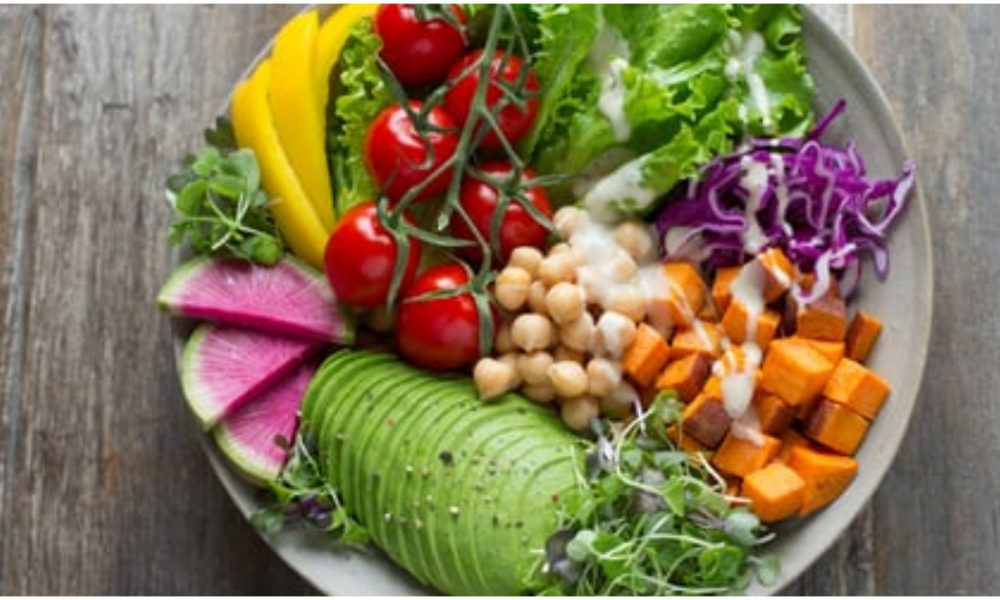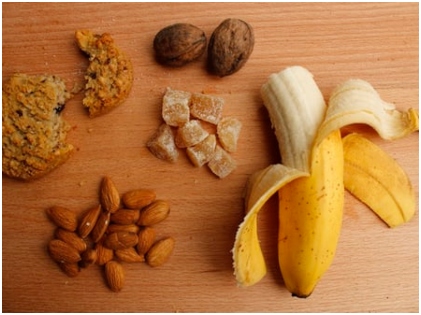
The Link Between Food and Mental Health

 Nicole Dynan is an accredited dietitian who is in practice and is preaching the benefits of healthy food on mental health.
Nicole Dynan is an accredited dietitian who is in practice and is preaching the benefits of healthy food on mental health.
We all know how attractive sweet, refined, and high-carb junk food appear to us when we are stressed, down, or simply tired. Reaching out for that bag of crisps or that bar of chocolate when you’re crabby is a natural impulse, and there is a science behind it! Have you ever considered what indulging in these food items does to your energy levels and your mood?
The Science Behind Sweets and Its Effect On Our Bodies
Yes, cakes, lollies, chips, and sweets make you feel good while you are stuffing your mouth with them on your sofa in front of the TV or in bed when you’re reading your book. But they lack nutrients and are digested by the body very quickly. This rapid digestion is what causes a spike in our blood sugar levels which initially leads to a hike in energy levels, but this is quickly followed by a sluggish drop. That’s why you feel utterly lazy after binging on junk food.
How Can Healthy Food Benefit Your Mental Health?
You feel at your best when you follow a diet that provides an adequate intake of good quality macronutrients like quality carbs that keep your blood sugar levels normal and happy. Not all carbohydrates are bad for you, and making the right choices will lead to you feeling more energized and less prone to depression or other mental illness. Carbs like high GI, whole-grain alternatives are the best choice to keep us full much longer and stabilize our mood.
A diet rich in a variety of nutrients, minerals, and vitamins is the best possible eating plan for our brains to be healthy and thus for our moods to be more regular and better. According to Dynan, it is best to focus on the overall quality of food rather than to pinpoint specific nutrients. However, the most important nutrients for good mental health are B vitamins, Omega-3 fatty acids, selenium, tryptophan, and resistant starch.
B Vitamins
B vitamins are found in whole grains and lean meats, and they are responsible for many neurological processes. A happy and healthy brain relies on an adequate intake of B vitamins. Pineapples are a delicious source of B vitamins and manganese, as well as folate and vitamin C.
Omega-3 Fatty Acids
 Omega-3 fatty acids are spoken about a lot, and you probably already know that it is found in fish, extra-virgin olive oil, and some varieties of nuts. Omega-3 fatty acids have been scientifically linked to a reduction in the symptoms of depression. This is based on the fact that it makes the passing of serotonin through the brain much easier, allowing serotonin to reach the cells quickly and creating feelings of happiness.
Omega-3 fatty acids are spoken about a lot, and you probably already know that it is found in fish, extra-virgin olive oil, and some varieties of nuts. Omega-3 fatty acids have been scientifically linked to a reduction in the symptoms of depression. This is based on the fact that it makes the passing of serotonin through the brain much easier, allowing serotonin to reach the cells quickly and creating feelings of happiness.
Selenium and Tryptophan
Selenium doesn’t get enough time in the spotlight but is an important nutrient that aids in boosting levels of serotonin, elevating dips in our mood. It can be found in meat, seeds, fish, Brazil nuts, and wholemeal bread. Tryptophan is an essential amino acid that is also not commonly recognized just like selenium. But it has the important role of aiding in the production of serotonin and can be found in cottage cheese, tofu, eggs, salmon, chicken and red meat, peanuts, almonds, and chickpeas.
Resistant Starch
 Resistant starch is a fiber that basically resists digestion. It acts as a food source for good gut bacteria, and a good gut has been scientifically proven to be essential for a good mood and better mental health. Resistant starch helps maintain the integrity of the colon and intestinal wall and is converted to short-chain fatty acids by good bacteria which make you feel great! Green bananas, cooked and cooled potatoes, and even pasta or rice are good sources of resistant starch.
Resistant starch is a fiber that basically resists digestion. It acts as a food source for good gut bacteria, and a good gut has been scientifically proven to be essential for a good mood and better mental health. Resistant starch helps maintain the integrity of the colon and intestinal wall and is converted to short-chain fatty acids by good bacteria which make you feel great! Green bananas, cooked and cooled potatoes, and even pasta or rice are good sources of resistant starch.
Another way to avoid craving for sweets and refined carbs later in the day is to begin your day with a good and hearty breakfast with all the right food. Whole foods are the best choice, and focusing on a good diet is a proven way of being on top of your game and enjoying better moods and lower risks of depression. If you find it difficult to eat a specific food or keep a record of what you are eating throughout the day, begin by simply eating a variety of colorful foods and pulses, grains, and healthy meats.
More in Mental Health
-
`
5 Reasons Why Dad’s Side of the Family Misses Out
Family bonds are intricate and multifaceted, often creating a unique tapestry of connections. However, many people notice a peculiar trend: stronger...
July 12, 2024 -
`
A Quick Guide on How to Get Short-Term Disability Approved for Anxiety and Depression
Living with anxiety or depression poses unique challenges, particularly in the workplace, where stress can exacerbate symptoms. For many, short-term disability...
July 5, 2024 -
`
Why Do People Feel Sleepy After Eating?
Is feeling sleepy after eating a sign of diabetes? Well, not directly. There are many reasons why you feel drowsy after...
June 20, 2024 -
`
What Is High-Functioning Depression? Symptoms and Treatment
High-functioning depression may not be a term you hear every day, but it’s a very real and challenging experience for many....
June 13, 2024 -
`
Kelly Clarkson’s Weight Loss Ozempic Journey – Debunking the Rumors
In a refreshing moment of transparency, Kelly Clarkson, the beloved singer and talk show host, sheds light on her remarkable weight...
June 3, 2024 -
`
What Is the Best Milk for Gut Health and Why?
In recent years, the milk section at the grocery store has expanded far beyond the traditional options. While cow’s milk has...
May 30, 2024 -
`
Do Dental Implants Hurt? Here’s All You Need to Know
When you hear “dental implants,” you might wince at the thought of pain. But do dental implants hurt as much as...
May 24, 2024 -
`
5 Key Differences Between A Psych Ward & A Mental Hospital
Curious about the differences between a psych ward and a mental hospital? You are not alone. With the mental health conversation...
May 16, 2024 -
`
It’s Official! “Selling Sunset’s” Christine Quinn & Husband Christian Dumontet Are Parting Ways
Have you ever found yourself unexpectedly engrossed in the personal lives of celebrities, especially when their stories take dramatic turns? Well,...
May 9, 2024










You must be logged in to post a comment Login